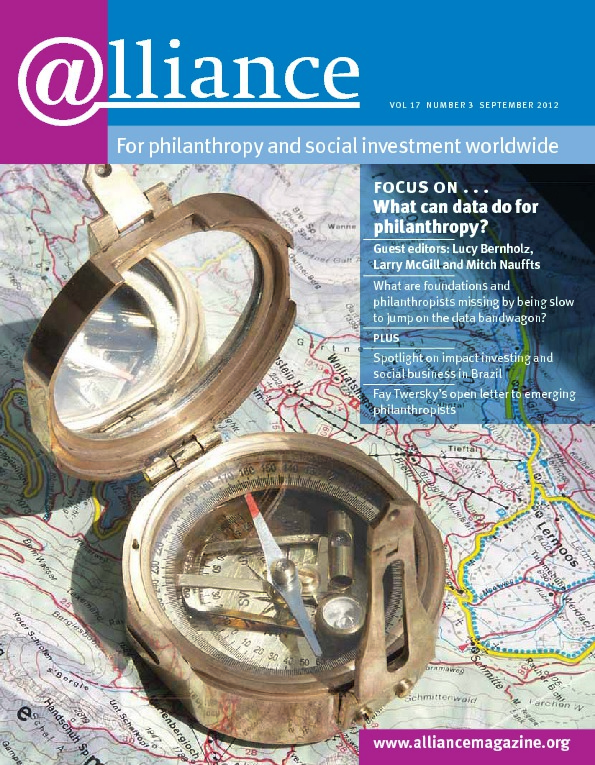Paul Woolley’s article in the June issue of Alliance does a good job reminding readers how most of the assets of foundations and pension funds continue to be managed on the premise of the now fully discredited efficient market hypothesis. His focus on the principal-agent problem is also valid and increasingly shared among institutional-scale investors, who are gradually moving into direct investments, particularly in private equity.
Of his five remedies, I would underscore the first one in particular for the pension and endowment community: adapt an approach based mainly on long-term (ideally growing) dividend flows. Such an approach best matches (and therefore hedges) the underlying liability structure these funds are seeking to finance. Manager incentives should be aligned with this objective where appropriate.
I only wish Woolley had pushed much further into the subject of his article, investing in a way that aligns both self-interest and the greater good. Given Woolley’s credentials, and in particular given his former business partner Jeremy Grantham’s understanding of the game-changing finite resource and waste sink limits of the planet, he and we must dig much deeper in our challenge to rethink finance and investment. Where better to start than with the pools of capital set up for the purpose of public good?
This of course is not a new conversation. But even mission-aligned investment, and the integration of environmental, social and governance (ESG) factors into the investment process, are only pieces of ‘the future of finance’ (coincidentally the name of both my blog and Woolley’s book).
Real investment – not to be confused with financial speculation – is the bridge to the future sustainable economic system we need. Such an economic system must respect the finite boundaries of the planet, while delivering a shared well-being to humanity. Unfortunately, the science is now clear that we are in what is called ecological overshoot. The investment world has yet to appreciate financial overshoot in terms of the unsustainable asset valuations that accompany ecological overshoot. They are nowhere more evident than with fossil fuel assets, what I call civilization’s $20 Trillion Big Choice.
This reality changes everything for financial investors. Backward-looking modern portfolio theory, traditional benchmarking, and our statistics-based understanding of financial risk are all helpless to consider the implications. The future of finance and investment requires looking forward with a scientific understanding of how the economy, and by extension finance, is embedded in the biosphere, not separate from it.
John Fullerton
Founder and president, Capital Institute



Comments (0)